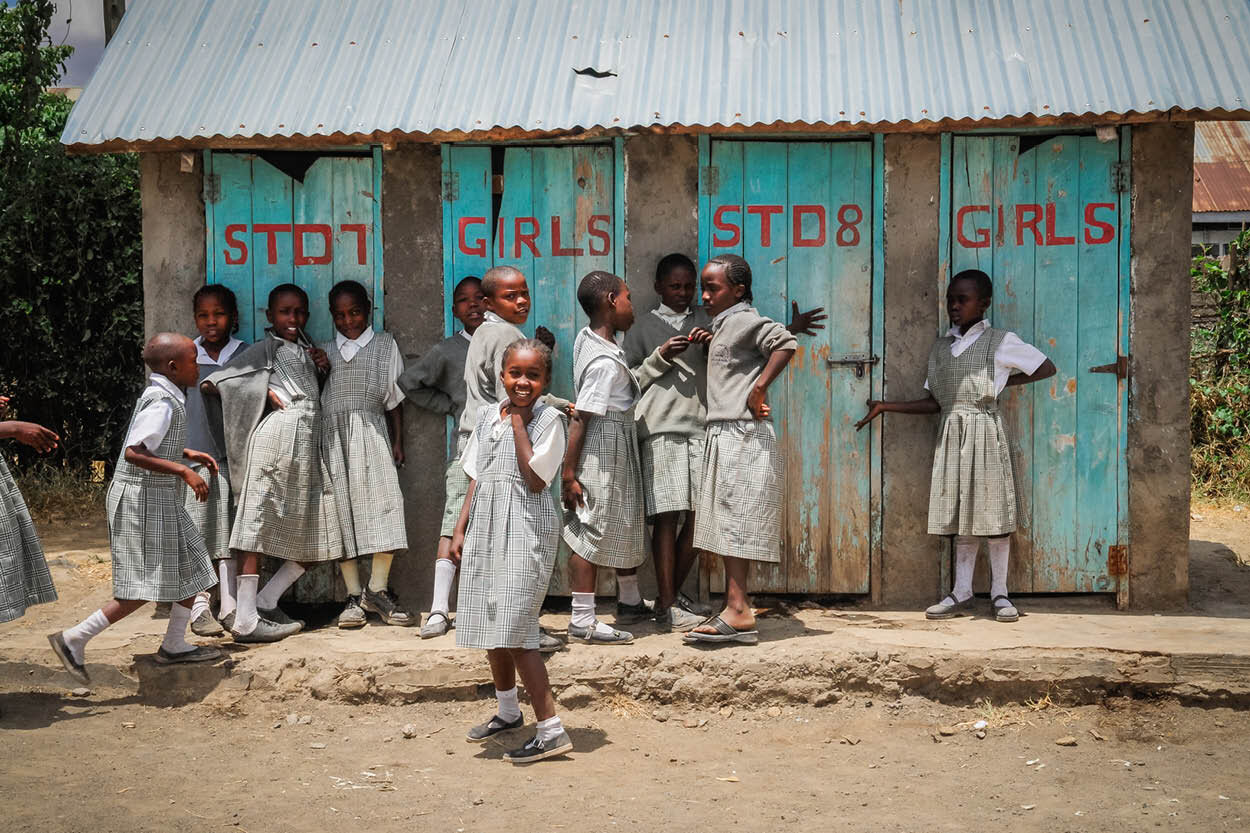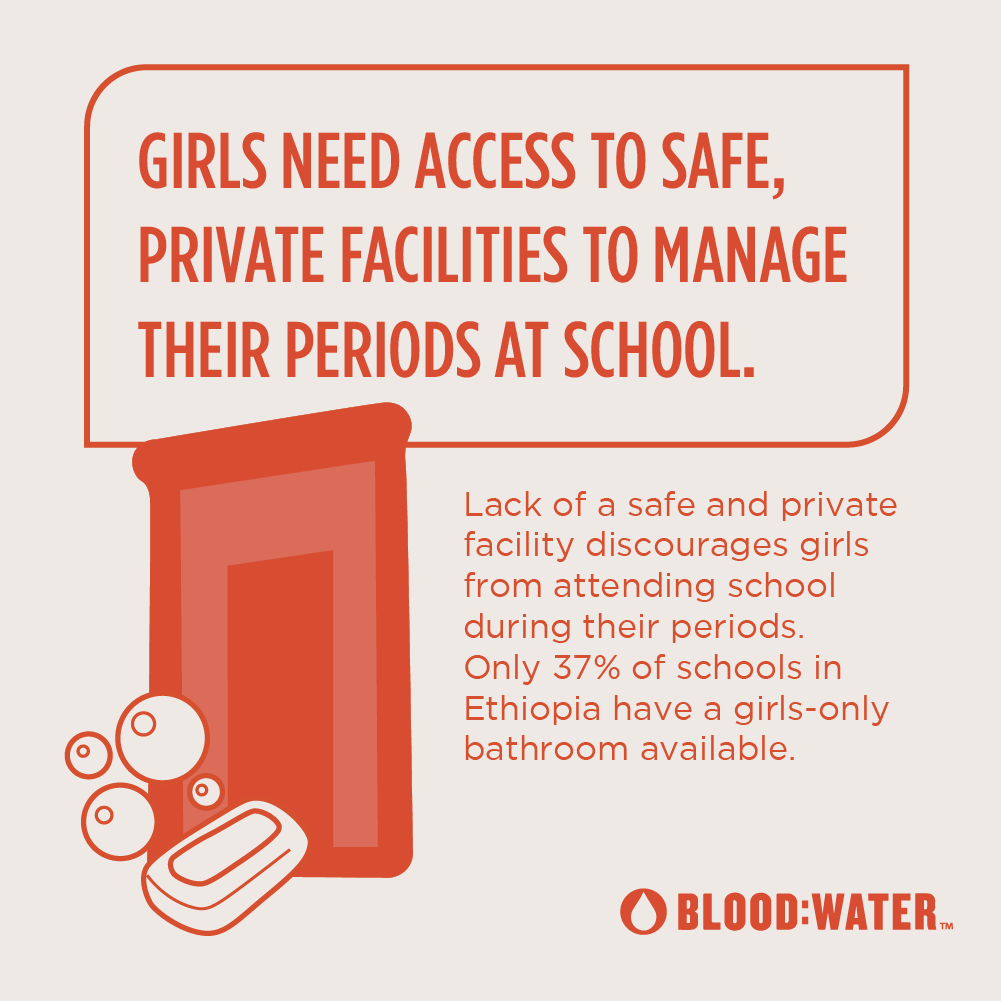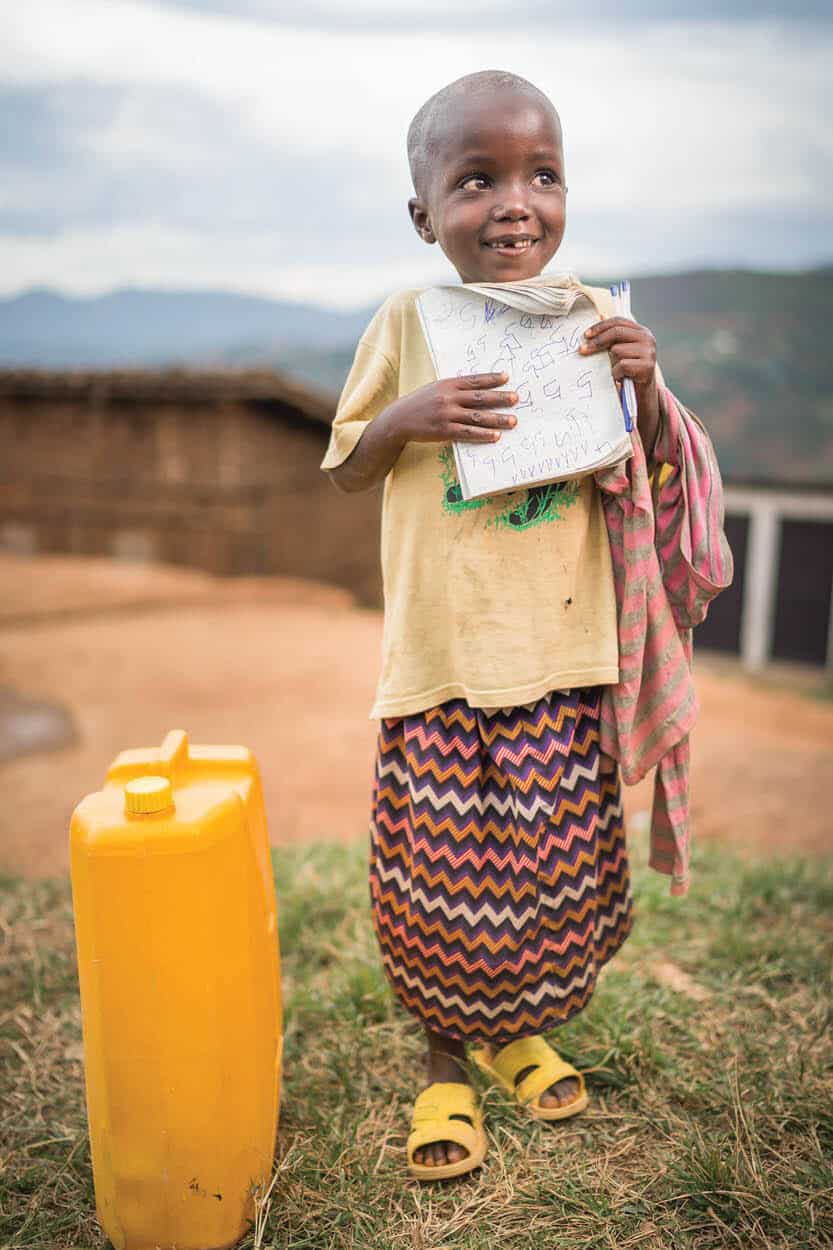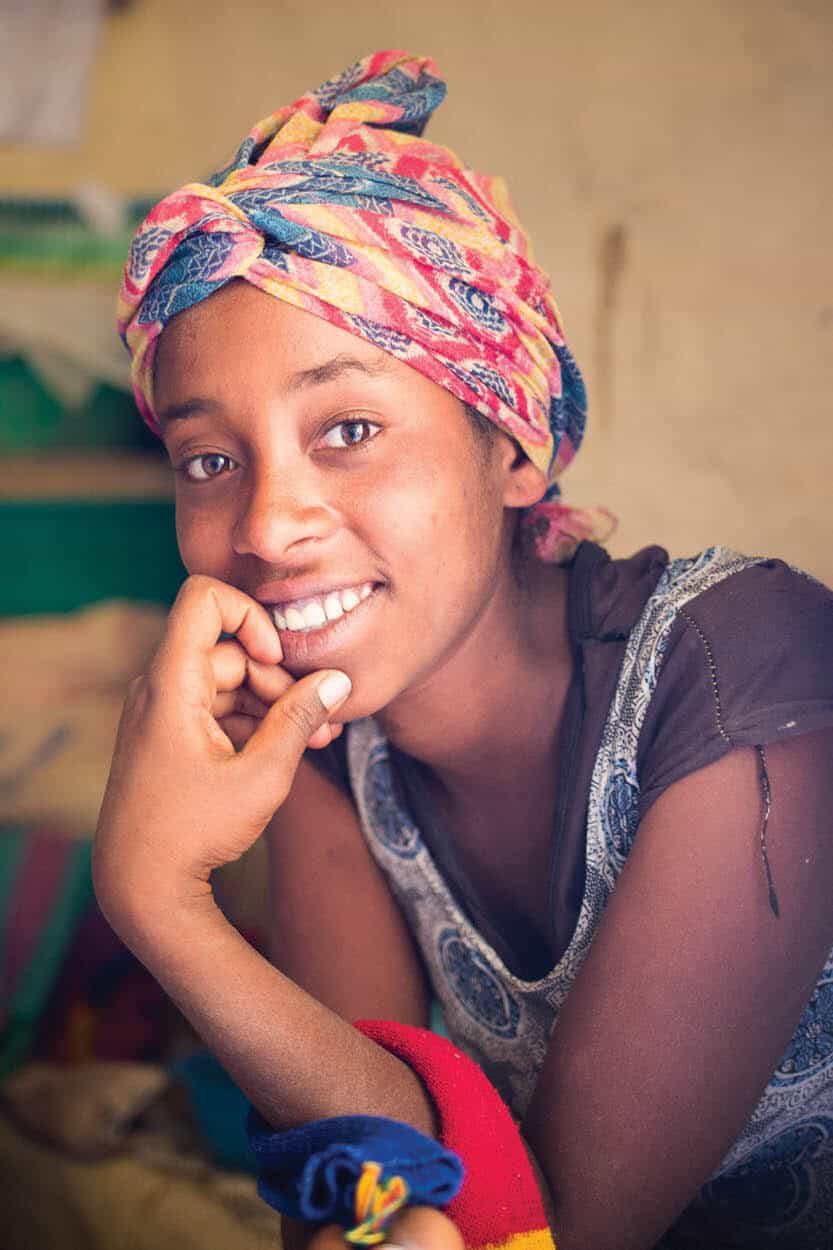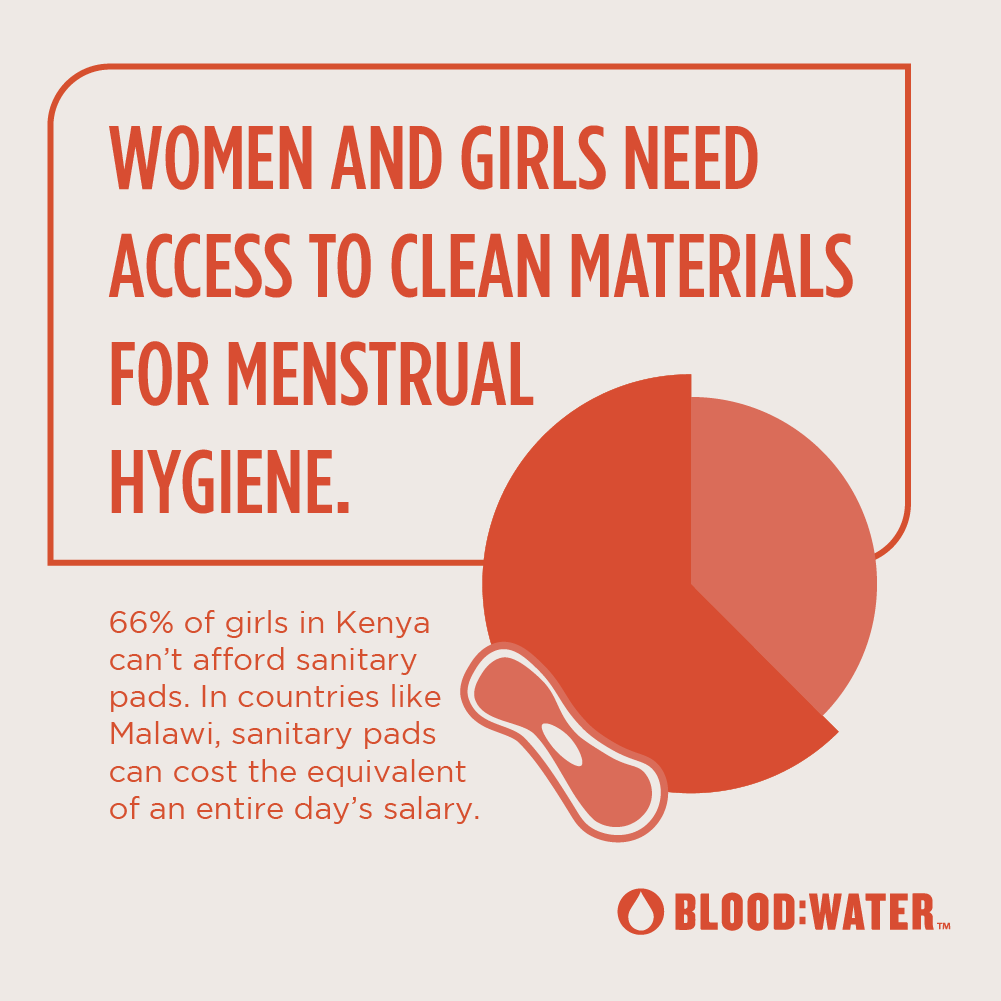Normally at this time of year we’d be sharing an opportunity for you all to help provide water and sanitation to children in Africa as they return to school. However, COVID-19 has presented a wide range of challenges not only to us, but to our partners in sub-Saharan Africa. And while families in the United States are learning to adjust to a hybrid of virtual and classroom learning, many schools across sub-Saharan Africa are remaining closed until at least January 2021.
School Means Safety, Security, and Opportunities
School provides safety, security, and opportunities for young girls and boys in sub-Saharan Africa. Schools provide daily nutrition, water, sanitation facilities, and other essential resources for children who may otherwise be experiencing poverty and hunger at home.
To combat this gap in vital support for children while school remains out, our partners in sub-Saharan Africa are adapting on a daily basis to serve their communities. With schools remaining closed, a number of our partners are stepping up to deliver food and other essential supplies that children would normally have accessed through the classroom.
Equipping Girls So That They Are Not Left Behind
Did you know that a lack of resources for menstrual hygiene management causes adolescent girls in sub-Saharan Africa to miss up to 20% of their school year? The feminine hygiene supplies we take for granted in the US, along with constant access to clean, private bathrooms, are often unavailable in developing countries.
Additionally, in Africa there are a number of deep-rooted myths and taboos surrounding menstruation. This, coupled with a lack of feminine hygiene supplies, creates an environment where adolescent girls and women are vulnerable to bullying and violence when their bodies follow the normal, healthy cycle of menstruation.
This leads to girls staying at home and not attending school during their periods, which frequently causes them to fall behind in education, and often can lead to them dropping out of school altogether. Menstrual hygiene management (MHM) is vital for the health, safety, and welfare of women worldwide, and it is critical for both men and women to understand its importance.
How Our Partners Affect This Important Change
Drop of Water, our partner in Ethiopia, has been one of the frontrunners of partners addressing these imminent needs in schools. During the school year they provide education and resources for menstrual health and hygiene through the classroom, reaching hundreds of girls at once. Now, with months of ongoing school closure, DOW has been reaching out to girls in their homes and discovered that the need is much greater than they previously knew!
“I was 16 when I started menstruating. I didn’t have access to sanitary products, or even undergarments to keep them in place if I had them. I was expected to continue with my chores which meant that I had to use my own clothing, or whatever I could find, to absorb my flow,” says Mama Likeyelesh, who has taken a leading role in menstrual hygiene management and education for both adolescent girls and boys alongside our partner, Drop of Water, in Ethiopia.
Since Mama Likeyelesh and Drop of Water have included men and boys in education around menstruation, girls report less teasing and bullying, and fathers have shared that they appreciate the information and resources so that their girls have a greater opportunity for success.
For our partner COPRED in Malawi, one of their strategies to help girls stay in school is to provide supplies and instruction for making reusable sanitary pads. With schools remaining closed, Jimmy, their Executive Director told us,
>
“I have six girls, so I make sure … that every girl in the community where I work can go to school. They should be empowered with knowledge and skills. That’s my motivation.”
This is just one example of the innovation continually demonstrated by COPRED, and all of our partners, as they adapt to continue services in the face of dramatic changes brought about by coronavirus.
Join Our Partners In This Important Work
In addition to COPRED’s efforts to bring MHM resources to homes and villages, many of our partners are bringing supplies directly to families including food, medicine, soap, and other basic necessities for daily life. Thanks to a generous $20,000 matching grant, your gift today through September 21 will be doubled to support our partners’ work providing these essential resources to children and families in these challenging times.
It usually takes $39 to provide training and materials needed to support 20 adolescent girls with resources for menstrual hygiene management, but thanks to the Matching Grant..
-
Your $195 gift becomes $390, supporting 400 girls.
-
Your $78 gift becomes $156, supporting 80 girls.
-
Your $39 gift becomes $78, supporting 40 girls.
As travel and transport continue to be affected, supply costs have skyrocketed, and availability is limited.
Will you make a gift today to help our partners provide resources for children to keep them safe and prepare them to be able to attend school when classes resume? Please join the fight so that we can reach our $40,000 fundraising goal by September 21st!
Thank you for your compassion and generosity during these challenging times, and please know that you are making a real impact for the future of the girls and children of Africa. Thank you for supporting the work of our partners, who remain on the frontlines of the coronavirus pandemic in their communities. They are encouraged by your generosity, and determined to meet the need.
More Stories:
Categories
